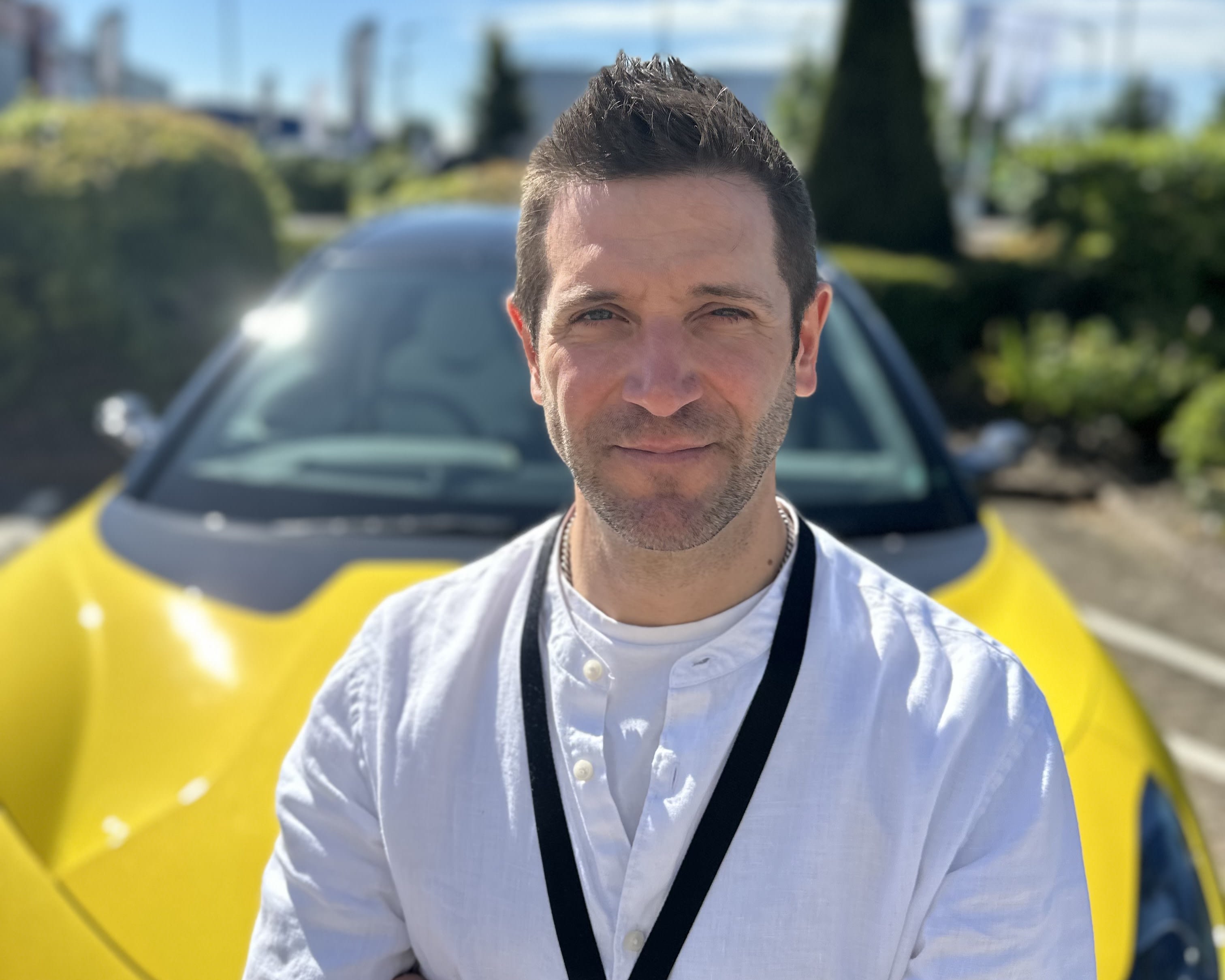You can expect to see more hydrogen-powered cars from Hyundai in the future, after the manufacturer unveiled new plans to invest heavily in the tech.
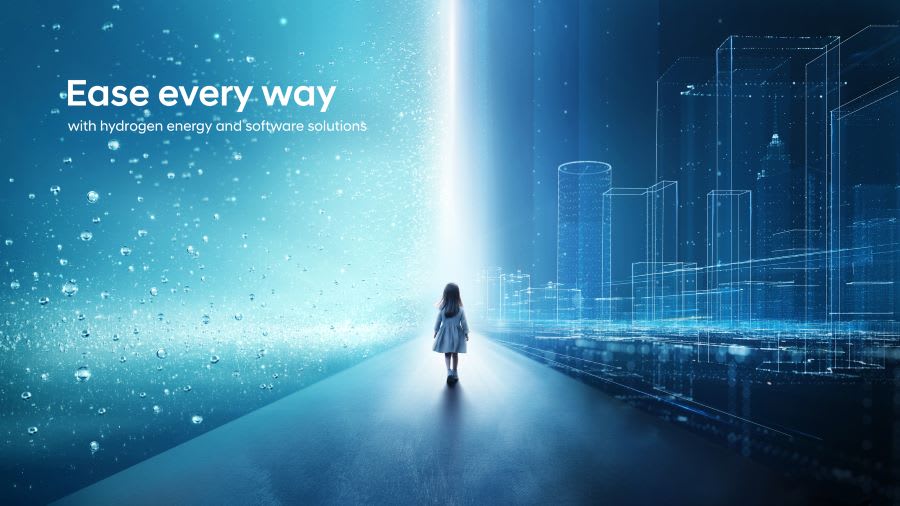
Ask any green energy expert, and they’ll likely tell you that hydrogen has an important role to play in the future of motoring, alongside more traditional electric vehicles (EVs).
Hyundai is one of the few brands that offers a hydrogen car right now, in the form of the Nexo, which you can lease with Select.
Toyota also offers the hydrogen-powered Mirai, and BMW has been developing an iX5 Hydrogen SUV (below).
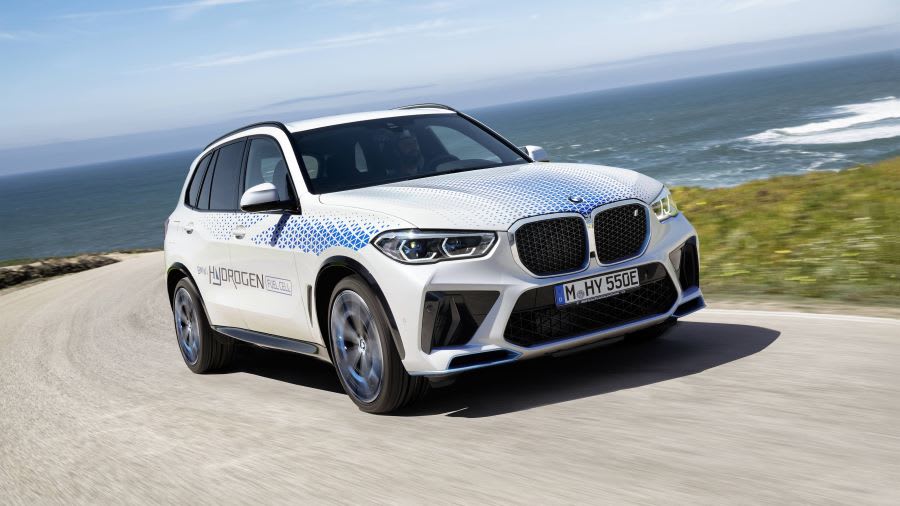
In case you need a recap, you can consider hydrogen cars as a type of electric vehicle.
These ‘fuel cell electric vehicles’, or ‘FCEVs’, have special tanks in which oxygen combines with hydrogen to create a flow of electrons that powers an electric drive motor while also charging a high voltage battery.
This ‘reverse electrolysis’ reaction produces nothing but harmless water vapour, rather than any other nasty emissions.
And refilling a hydrogen car takes just a matter of minutes, unlike the slightly longer time period it takes to recharge an EVs battery.
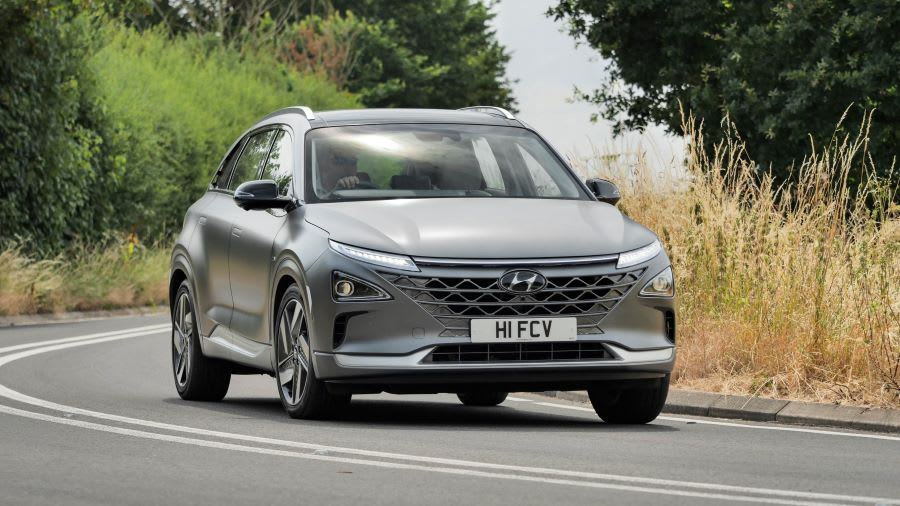
So, what’s the catch?
Well, at the moment there are only around 15 hydrogen refuelling stations in the UK, and there’s a significant dearth of them in the Midlands.
That should hopefully change in the coming months, with firms like British start-up Element 2 having been awarded millions of pounds in Government funding to create a nationwide network of hydrogen refuelling stations in 2024.
Now Hyundai, speaking at the CES tech show in Las Vegas, has revealed its own plans for a ‘hydrogen energy ecosystem’.
Hyundai is developing megawatt-scale polymer electrolyte membrane (PEM) electrolyser fuel cell manufacturing capabilities, which is expected to commercialise within the next few years.
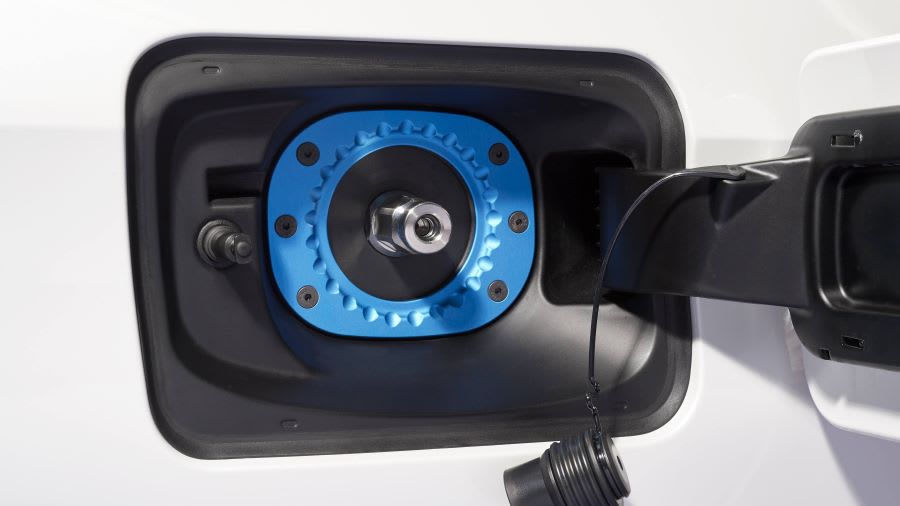
Crucially, Hyundai also wants to take ‘environmental pollutants’ and turn them into ‘clean hydrogen’. It’s a process the manufacturer is calling ‘Waste-to-Hydrogen’ (W2H) and ‘Plastic-to-Hydrogen’ (P2H).
W2H involves the fermentation of organic waste, such as food and livestock manure, to generate biogas. This biogas is then treated to capture carbon dioxide, and to produce hydrogen.
P2H, on the other hand, involves melting waste plastics that cannot be recycled, gasifying the molten plastics and producing hydrogen by removing unnecessary elements.
And Hyundai is already well on the road to ‘Waste-to-Hydrogen’ success, with several mini-hubs already established in Indonesia.
Jay Chang, President and CEO of Hyundai Motor Company, says: “At Hyundai, we believe that science and humanity are two sides of the same coin; that advanced technology should also make people’s lives better. Clean hydrogen should be for everyone, powering everything, and available everywhere.”
Hydrogen is a controversial topic when it comes to the automotive industry, but with Hyundai and BMW throwing their considerable weight behind the technology, the future looks interesting indeed. Watch this space.
Enjoyed this? Read our latest news
- Huge number of parents avoid journeys with kids over two hours
- New McLaren GTS is school-run supercar
- First look at Range Rover Electric
- Pole to Pole mission success for Nissan Ariya
- MG Cyberster enjoys European grand tour
Where To Next?
For all the latest reviews, advice and new car deals, sign up to our newsletter.
Looking for a great leasing deal? Check out our incredible range of special offers.
Read our latest reviews and find the right model for you.
Want to know more about leasing? Take a look at our comprehensive leasing guides.
Interested in everything motoring? Why
